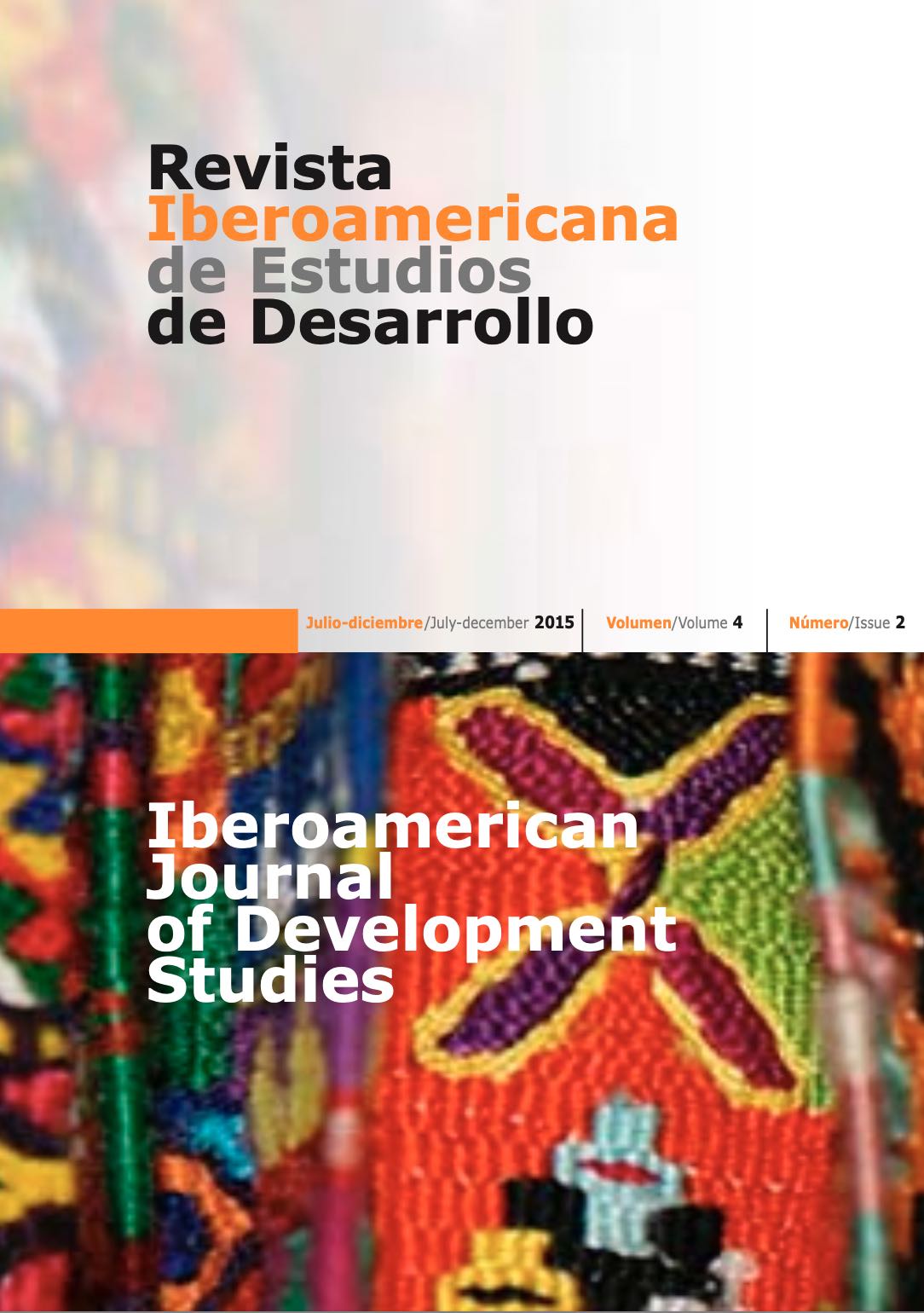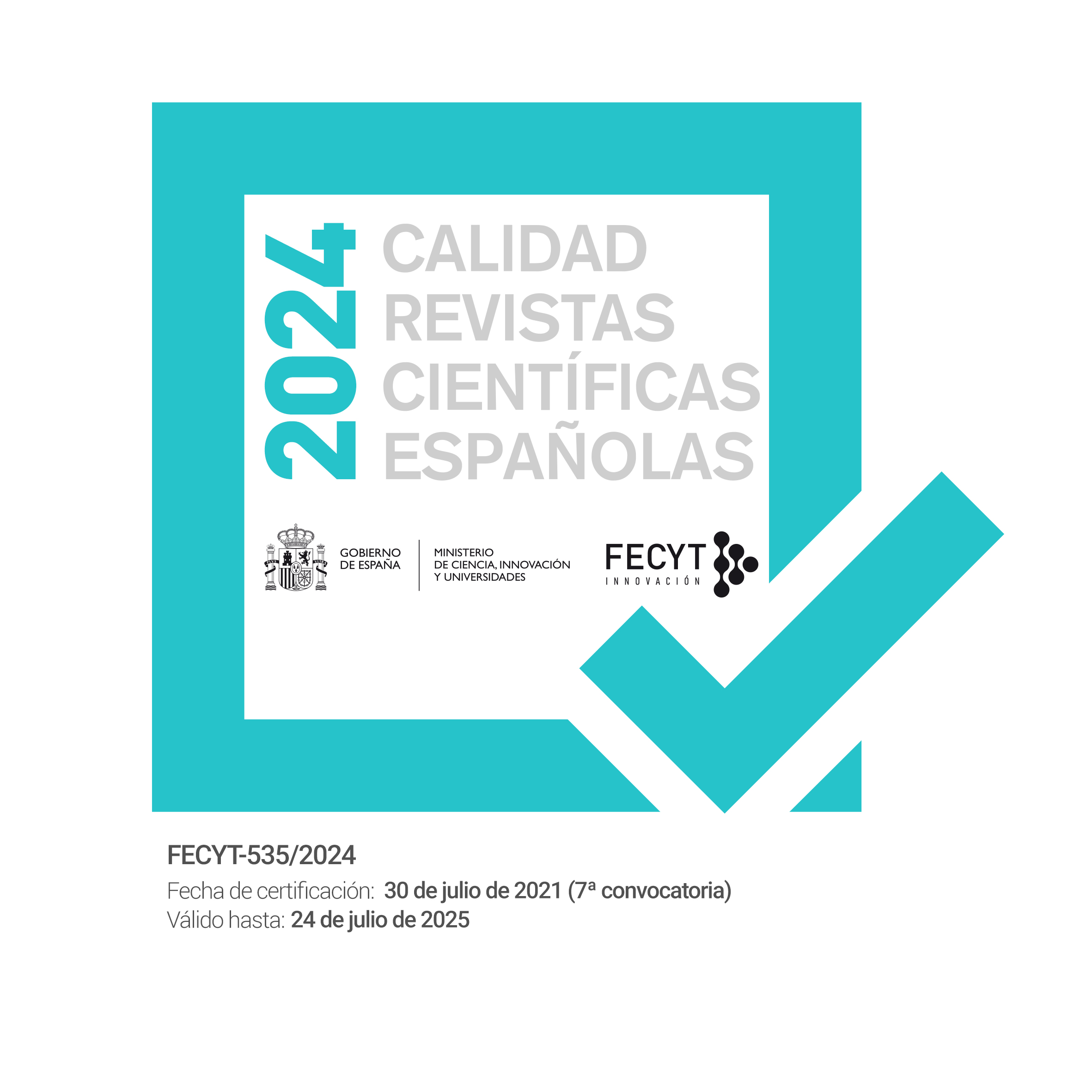The origins of budget support in the evolution of contemporary aid
DOI:
https://doi.org/10.26754/ojs_ried/ijds.172Keywords:
budgetary support, aid, conditionalityAbstract
Budgetary support dates back to relatively recent times, when the interest in this type of aid emerged during the last decade. However, budgetary support, seen as a fund transfer from a country or organization to other recipient country to help them with their national budgets, appeared earlier.
In this sense, this paper reviews this type of aids from the 50s —when the decolonization process started— to our days. Since that decade some key elements have appeared and they have led to the concept of budgetary support as it is known today. The main elements are the fight against poverty —as the main goal—, the change of approach about the conditionality of aids and the valuation of the trust-based relationships between benefactors and recipients.
Downloads
References
ÁLVAREZ R (2010). El apoyo presupuestario en la cooperación al desarrollo europeo: Una falsa panacea. Policy Brief 30: pp. 1-5.
BANCO MUNDIAL (1981). Accelerated development in sub-Saharan Africa: an agenda for action. Edición inglesa. Banco Mundial.
BANCO MUNDIAL (1994). Adjustment in Africa: reforms, results, and the road ahead. Edición inglesa. Oxford University Press para el Banco Mundial. ISSN 1020-0851.
BANCO MUNDIAL (1998). Assessing Aid: What Works, What Doesn't, and Why. Oxford University Press for the World Bank. Washington DC.
BANCO MUNDIAL (2001). The Role of Government in Strengthening Country Ownership of the Development Agenda. Roundtable of Senior African Government Officials, Accra, Ghana, June 18-20. Institute for Economic Affairs, Ghana and CDF Secretariat.
BANCO MUNDIAL (2003). Toward Country-led Development. A Multi-Partner Evaluation of the Comprehensive Development Framework. The World Bank.
BINKERT G, SULEMANE J (2006). Budget Support in Mozambique. in (eds). Koeberle et al, Budget Support as More Effective Aid?. The World Bank, pp. 371-374.
BIRD G (1999). The Political Economy of Foreign Aid: Fatigue or Regeneration?. International Review of Economics and Business 2(2), pp. 1-24.
BLAKE R (2000). The World Bank’s Draft Comprehensive Development Framework and the Micro-Paradigm of Law and Development. Yale Human Rights and Development 3, pp. 159-189.
BOSSUAT G (2003). French Development Aid and Co-operation under de Gaulle. Contemporary European History 12(4): pp. 431-456.
BROUWER M (2006). The Netherlands: Country Selectivity and Aid Modality Choices in (eds). Koeberle et al, Budget Support as More Effective Aid?. The World Bank, pp. 447-449.
BURNSIDE C, DOLLAR D (2000). Aid, Policies and Growth. The American Economic Review 90(4): pp. 847-868.
BURNSIDE C, DOLLAR D (2004). Aid, Policies and Growth: Reply. The American Economic Review 94(3): pp. 781-784.
CARTER R, LISTER S (2007). Apoyo presupuestario: Tan bueno como la estrategia que financie. En El perfil social del desarrollo: Situación y perspectivas de la lucha contra la pobreza mundial. V Informe Anual de la Plataforma 2015 y Más. Madrid: Icaria.
COLLIER P, DOLLAR D (2002). Aid allocation and poverty reduction. European Economic Review 46: pp. 1475–1500.
COLOM (2003). ¿El retorno de los elefantes blancos? África, deuda, y pobreza. Revista de Economía Crítica 1: pp. 175-187.
COMISIÓN EUROPEA (2000). Community support for economic reform programmes and structural adjustment: review and prospects. Comunicación de la Comisión al Consejo y al Parlamento Europeo. COM (2000) No 0058 final.
COMISIÓN EUROPEA (2005). European Commission Budget Support: an innovative approach to conditionality. Direction General of Development. European Commission.
COMISIÓN EUROPEA (2005/b). El Consenso Europeo de Desarrollo. Declaración conjunta del Consejo y de los Representantes de los Gobiernos de los Estados miembros reunidos en el seno del Consejo, del Parlamento Europeo y de la Comisión sobre la política de desarrollo de la Unión Europea. No. 2006/C 46/01.
COMISIÓN EUROPEA (2007). Guidelines on the Programming, Design & Management of General Budget Support. Guidelines No 1. EuropeAid. European Commission.
COMISIÓN EUROPEA (2010). El futuro del apoyo presupuestario de la UE a terceros países. Libro Verde de la Comisión Europea al parlamento europeo, el comité económico y social y el comité de las regiones. COM (2010) No. 586 final.
COMISIÓN EUROPEA (2011). The future approach to EU budget support to third countries. Comunicación de la Comisión Europea al parlamento europeo, el comité económico y social y el comité de las regiones.
COMUNIDAD EUROPEA (2000). Acuerdos de Asociación entre los Estados de África, del Caribe, y del Pacífico, por una parte, y la Comunidad Europea y sus Estados miembros, firmados el 23 de junio en Cotonú. Diario Oficial de las Comunidades Europeas. L. 317.
COMUNIDAD EUROPEA, PAÍSES MIEMBROS Y PAÍSES ACP (2000). Acuerdo de Cotonú. Acuerdos de Asociación No. 2000/483/CE.
DE RENZIO P, ANGEMI D (2012). Comrades or culprits? Donor engagement and budget transparency in aid-dependent countries. Public Administration Development 32: pp. 167-180.
DOM C, GORDON A (2011). Budget Support in Fragile Situations. Oxford: Oxfam Discussion Papers.
DUBOIS A (2000). Fatiga de la Cooperación. En (eds.) Pérez de Armiño, K. Diccionario de Acción Humanitaria y Cooperación al Desarrollo. Instituto de Estudios sobre Desarrollo y Cooperación Internacional – Icaria, Barcelona.
FAUST J, KOCH S, LEIDERER S (2011). Multi-Donor Budget Support: Only Halfway to Effective Coordination. Berlin: German Development Institute / Deutsches Institut für Entwicklungspolitik (DIE). Briefing Papers 8/2011.
FAUST J KOCH S, MOLENAERS N, TAVAKOLI H, VANHEUKELOM J (2012). The future of EU budget support: political conditions, differentiation and Coordination. European Think-Tanks Group.
FERNANDES A, XU K, JAMES C, SAKSENA P, VAN DE MAELE N, CARRIN G, EVANS D (2013). General Budget Support: has it benefited the health sector?. Health Economics 22: pp. 1440-1451.
FONDO MONETARIO INTERNACIONAL (2012/a). Alivio de la deuda en el marco de la Iniciativa para los Países Pobres Muy Endeudados (PPME). Ficha técnica del FMI. http://www.imf.org/external/np/exr/facts/spa/hipcs.htm
FUCHS A, DREHER A, NUNNENKAMP P (2014). Determinants of Donor Generosity: A Survey of the Aid Budget Literature. World Development 56: pp. 172-199.
GORE C (2000). The Rise and Fall of the Washington Consensus as a Paradigm for Developing Countries. World Development Vol 28(5), pp. 789-804.
HOLVOET N, RENARD R (2007) Monitoring and evaluation under the PRSP: Solid rock or quicksand?. Evaluation and Program Planning 30: pp. 66-81.
HUTCHINSON E (1964). American Aid to Africa. Annals of the American Academy of Political and Social Science 354: pp. 65-74.
IDD & ASSOCIATES (2006). Evaluation of General Budget Support. Synthesis Report. Glasgow: International Development Department (IDD) & Department for International Development (DFID).
IDD & ASSOCIATES (2007). Joint Evaluation of General Budget Support 1994-2004 – Briefing Paper: Policy Questions and Answers. March. Glasgow: DFID. Adapted from OECD DAC (2005). Harmonising Donor Practices for Effective Aid Delivery: Volume 2 – Budget Support, Sector Wide Approaches and Capacity Development in Public Finance Management.
KNACK S (2013). Aid and donor trust in recipient country systems. Journal of Development Economics 101: pp. 316-329.
KNACK S, EUBANK (2009). Aid and Trust in Country Systems. World Bank Policy Research Working Paper. Human Development and Public Services Team.
LINN J (2004). Interview in Oral History Program. The World Bank Group Archives. Transcription by Becker, W.
MOLENAERS N (2012). The Great Divided? Donor perceptions of budget support, eligibility and policy dialogue. Third World Quarterly 33(5): pp 791-806.
MOSLEY P (1987). Overseas Aid: Its defence and Reform. Brighton. Wheastsheaf.
MOSLEY P, ABRAR S (2005). Budget support, conditionality and poverty. Sheffield Economic Research Paper Series, No. 2005012.
MOSLEY P, ABRAR S (2006) Trust, conditionality and aid effectiveness, in Koeberle et al, Budget Support as More Effective Aid?, pp. 311-332.
MURIEL MV (2000). Efectos económicos de la intervención del Fondo Monetario Internacional y del Banco Mundial en África Subsahariana. Revista de Economía Mundial 3: pp. 197-219.
NIETO JA (2005). Organización económica internacional y globalización. Los organismos internacionales en la economía mundial. (ed). Siglo XXI de España Editores.
OWUSU F (2003). Pragmatism and the Gradual Shift from Dependency to Neoliberalism: The World Bank, African Leaders and Development Policy in Africa. World Development 31(10): pp. 1655-1672.
PENDER J (2001). From “Structural Adjustment’ to ‘Comprehensive Development Framework’: conditionality transformed?. Third World Quarterly 22(3): pp 397-411.
PNUD (1990). Informe del Desarrollo Humano. Programa de las Naciones Unidas para el Desarrollo (PNUD). Edición española.
REID E (1966). The Crisis in Foreign Aid. The World Today 22(8): pp. 315-325.
REUSS H (1961). The United States Foreign Aid Program: An Appraisal. Annals of the American Academy of Political and Social Science 336: pp. 23-29.
RHENALS M, MARTÍNEZ LE (2009). La ayuda internacional al desarrollo: retórica y realidad. Perfil de Coyuntura Económica 14: pp. 9-50.
SINGER HW (1965). External Aid: For Plans or Projects?. The Economic Journal 75, pp. 539-545.
STIGLITZ JE (1998). Towards a New Paradigm for Development: Strategies, Policies, and Processes, en John H. Dunning (ed.) Making Globalization Good: The Moral Challenges of Global Capitalism, Oxford University Press, 2003, pp. 76-107.
STIGLITZ JE (2002). Participation and Development: Perspectives from the Comprehensive Development Paradigm. Review of Development Economics 6(2): 163-182.
TASSARA C (2012). Relaciones internacionales y cooperación al desarrollo. Políticas, actores y paradigmas. En: Jairo Agudelo T. (Editor). Debates sobre cooperación internacional para el desarrollo (pp. 15-81). Cartagena: Escuela Latinoamericana de Cooperación y Desarrollo (ELACID).
UNCETA K (2003). El sistema de cooperación frente a la crisis del desarrollo. Revista de Economía Crítica, 1, pp. 189-200.
UNION EUROPEA (2011). La gestion, par la Commission de l’appui budgétaire général, dans les pays ACP, ainsi que dans les pays d’Amérique latine et d’Asie. Rapport spécial Nº 11.
WOOD M, COLOMBO E (2013). Hacia la responsabilidad de los donantes en el seguimiento del apoyo presupuestario: consideraciones políticas y técnicas. Revista Iberoamericana de Estudios de Desarrollo, 2(1), pp. 46-70.
ZABALO P (2000). Programas de Ajuste Estructural. En (eds.) Pérez de Armiño, K. Diccionario de Acción Humanitaria y Cooperación al Desarrollo. Instituto de Estudios sobre Desarrollo y Cooperación Internacional – Icaria, Barcelona.
Downloads
Published
How to Cite
Issue
Section
License
Copyright (c) 2015 IbMarta Wood, José Boza, Matías González, Javier De-León-Ledesmaeroamerican journal of development studies

This work is licensed under a Creative Commons Attribution-NonCommercial-NoDerivatives 4.0 International License.
Accepted 2023-06-08
Published 2015-11-05








